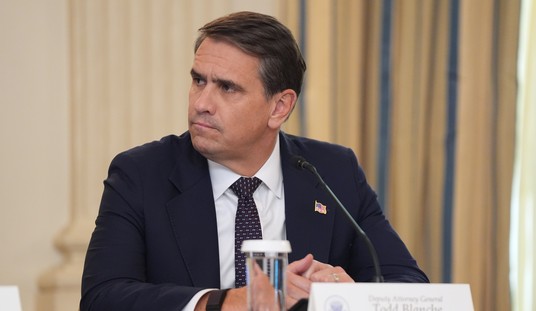A writer’s political and religious beliefs are not excrescences to be laughed away.
— George Orwell, Critical Essays
There is no question that Abraham Yehoshua is one of the premier Israeli writers of modern times. Such works as Mr. Mani, A Journey to the End of the Millennium, Five Seasons, and The Liberated Bride stand out as major accomplishments, not only in Israel but on the international stage as well.
His most recent novel, Friendly Fire, for which he was awarded the 2008 Premio Roma Prize, is a typically rich Yehoshuan product, delving into the “friendly fire” debate between Israelis as to the nature of Jewish history and the purpose of the Jewish state. It is an incendiary subject, for friendly fire, as we know, can be lethal, although in the novel the major characters emerge unscathed and the pivotal issues remain unresolved. Should Jews forget or remember? Can they find solace in the diaspora or must Jews work out their destiny in the Holy Land? These are important questions and Yehoshua is to be lauded for raising them.
Politically, however, given the influence that accrues to his celebrity, he has in my estimation done much harm to Israel’s prospects for an integral future, not so much in his fiction — though his A Woman in Jerusalem reconsiders the status of Israel’s capital — as in his newspaper articles, interviews, public activities, and doubtlessly in his lectures at Haifa University, where he is a professor in Near Eastern studies. Yehoshua is (or was) convinced that the Palestinians do not wish to destroy Israel but only to live in harmony and justice within and alongside the Jewish state and that Israel must surrender territory to achieve the elusive goal of mutual accord. He is an ardent supporter of the various peace movements — including the so-called New Movement that endorsed the electoral prospects of the left-wing Meretz party — parties which, fueled by noble but impracticable sentiments, have been clearly detrimental to the well–being of the country. Yehoshua had no compunction against publishing an op-ed in Italy’s La Stampa (January 20, 2008) calling on the U.S. to withdraw its ambassador from Tel Aviv and deploring the power of the “Jewish Lobby.”
I devote some time and thought to Yehoshua because I know him personally and grew enormously fond of him during our encounter at the New Writing Worlds symposium held at the University of East Anglia in Norwich in the summer of 2005. Our relationship prospered over the next year via email and telephone as we embarked on a “friendly fire” exchange of views, until the eruption of the Second Lebanon War in the summer of 2006, of which our budding friendship was one of the lesser casualties. The fire was not so friendly. Our disagreement over Israeli policy was decisive, Yehoshua lobbying strenuously for an immediate end to hostilities, leaving Hezbollah in place, while I believed that Israel should take advantage of the opportunity to finally crush the terrorist mini-regime which would otherwise continue to threaten the country’s security.
I have long felt that many of the finest creative minds in the literary world, whether poets, dramatists, or novelists, must be taken cum grano when they see fit to pronounce on political issues. Not all, of course, but perhaps most. It is as if they are occupationally prone to conceiving the political arena as part of an aesthetic framework, susceptible to snug resolutions, rather than the messy and often insoluble dynamic that it is. They tend to confuse, in the words of E.M. Forster, plot with story, the necessarily coherent with the unsatisfactorily inconclusive. The imagination seeks to dominate the empirical domain, especially when the former coincides with an unflinching and tenderly nurtured ideological commitment. It strives to impose an ideal order upon a resistant world and, in so doing, reaps the consequences of a fatal disjunction.
One thinks of literary frivolents like Louis de Bernières or José Saramago, whose condemnations of Israel are founded on neat, Manichean dichotomies that have no bearing on reality. More recently, Japanese novelist Haruki Murakami, who accepted the 2009 Jerusalem Prize for foreign writers, delivered a reception speech implicitly comparing Israel to a wall and Palestinians to eggs broken against it. In this tidy, fabricated scenario, Murakami, apart from churlishly insulting his benefactors whose award he should honorably have refused, forgot that there were 20,000 “eggs” in Sderot broken against a “wall” of Palestinian rocket fire and that thousands of Israeli “eggs” were smashed post-Oslo. He emerged from this simple-minded fiasco with egg on his face, plainly unable to differentiate truth from fiction.
But Yehoshua represents a different case in point. He is not a foreigner but an Israeli writer whose ancestry, political engagement, and proximity to actual events should, one might assume, have freed him from the web of fantasy in which the literary mind is so easily snared and served to alert him to the structure of reality.
During one of our supper conversations in the university refectory, the subject turned to Israel’s impending disengagement from the Gaza Strip. Yehoshua, whose sympathies are robustly on the left and who tends to identify with those whom he regards as underdogs, a.k.a. the Palestinians, could not contain his enthusiasm for the process, making light of my skepticism. The great man knew. All would be well. It had to be. The Palestinians would recognize Israel’s readiness to endure sacrifices, would surely be grateful for the greenhouses and infrastructure left behind to promote their nascent economy, and would respond in good faith to this new and impressive initiative.
“David, my boy,” he boomed in that passionate, basilican voice made to persuade even in the absence of logic or reason, “next year you will be my guest in Israel and we will go together for coffee and hummus in Gaza City.” “Bulli,” I replied, using the nickname permitted among friends, “next year we will be lucky to have coffee and hummus in Haifa.” And the following year, almost to the day, not only was Israel coming under rocket and mortar attack from Gaza, but Haifa itself was ablaze under Hezbollah missile fire, its citizens, far from relaxing over coffee and hummus in peaceful outdoor cafés, sweltering in makeshift bomb shelters.
I am reminded of Yehoshua’s compatriot Aluf Benn, a star political analyst for Israel’s left-leaning Haaretz newspaper who, five days before Hezbollah’s attack on Israel, praised its leader Hassan Nasrallah for “maintaining quiet in the Galilee” and affirmed the “stable balance of deterrence on both sides of the border [as] the best possible situation.” A five-day gap between exalted fatuity and uncompromising fact is uncharacteristically short. It usually takes years rather than days for a know-it-all political journalist to experience humiliation. Even so, I am not aware that Benn revised his assessment of Hezbollah’s intentions even after so definitive an embarrassment, for such people appear to be learn-proof.
But it is not a question of merely one more deluded media star. The number of those who dance around the golden calf of a false peace is legion, oblivious to the timely warning of the sage Jeremiah: “From the prophet even unto the priest every one dealeth falsely … saying peace, peace, when there is no peace.” As for Yehoshua, he remained relatively firm in his convictions despite the daily lessons administered by the real, non-fictional world. If anything, he stepped up the volume and intensity of his “peace” advocacy and his criticism of Israel’s treatment of the Palestinians as well as its putative, endemic belligerency.
Little seemed to deflect him. Yehoshua appeared unfazed by the reception he and his two leftish, pro-disengagement, and equally famous colleagues, Amos Oz and David Grossman, were accorded by a covey of Palestinian sympathizers at the 2008 Turin Book Fair, who objected to the presence of Israelis at the festivities. Though uniformly critical of Israeli policies and stalwart supporters of the movement to create a Palestinian state, Yehoshua and his friends seemed blissfully unaware that, for the left in general and Palestinians in particular, convictions do not matter as much as entelechy. To be Jewish and Israeli are sufficient reasons for excommunication.
For Yehoshua, nothing changed — that is, not until the recent Cast Lead operation in Gaza, when he appeared to modify his stance. In an open letter to Haaretz columnist Gideon Levy for January 19, 2009, Yehoshua justified the recent Israeli incursion into Gaza as the only means likely to persuade Hamas “to stop [its] senseless and wicked aggression” and the unilateral firing of rockets in “a bitter and hopeless war to destroy Israel.” This would certainly seem to be an advance upon his previous position. Yet Yehoshua persists in maintaining that peace is ultimately possible with a genocidal terrorist regime whose covenant swears the annihilation of Israel. Moreover, he signs off his letter to Levy, “In friendship always.” Let us recall that Levy is an influential left-wing columnist who continues to believe that Israel is a brutal colonial occupier, that Israel is a child-killer, and that, as he further argues in his reply to Yehoshua, “Israel is a dangerous and violent country that lacks scruples.”
One would expect no less of a moral crustacean like Gideon Levy and his leftish colleagues at Haaretz and most of the Israeli media. Indeed, like so many of their Jewish counterparts in the diaspora, these Israelis are like klutzy suicide bombers who only immolate themselves. After all, one of the distinguishing features of the left — and especially the Jewish left — is that it is immune to the lessons of experience. There seems to be no real awareness of the Islamic intention to turn the ancient Jewish homeland into a kind of territorial palimpsest overlaid by Arab culture, like those original Hebrew texts, fragments of prayer books and medieval Hebrew codices, that have been largely erased and written over by Arabic texts. This is the political fate that reprobate Israeli writers and journalists are busily tempting. But one would have hoped that Yehoshua, perhaps Israel’s most brilliant writer, was capable of finally understanding what he and his countrymen are up against.
As reported in Palestinian Media Watch for April 30, 2009, Egyptian cleric Muhammad Hussein Ya’qoub has eloquently explained the Arab point of view: “If the Jews left Palestine, would we start loving them? Of course not. …They are enemies not because they occupied Palestine. They would have been enemies even if they did not occupy a thing.” Has Yehoshua paid attention? Apparently not. He continues to believe in “the road to peace,” despite the “ordeals” along the way, with an enemy that will never relent in its efforts to eradicate the Jewish state from the face of the earth.
We must respect him for his consistency if not for his acuity. At the same time, we recall what Emerson said about consistency, whose virtues are sometimes overpraised. As for myself, I am wondering whether, two to five years from now, A.B. Yehoshua will be able to enjoy coffee and hummus anywhere in Israel at all.










Join the conversation as a VIP Member